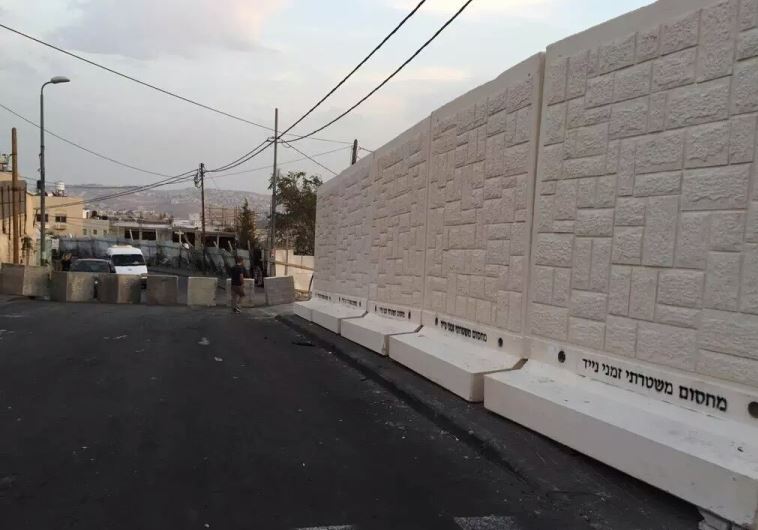Temporary wall erected between flashpoint Jewish and Arab neighborhoods in Jerusalem
Police: 5-meter-high Jabel Mukaber concrete barrier intended to prevent ongoing terror wave against Armon Hanatziv residents.
 Installing of temporary wall between Armon Hanatziv and Jebl Mukaber in Jerusalem(photo credit: SHLOMO MOR)Updated:
Installing of temporary wall between Armon Hanatziv and Jebl Mukaber in Jerusalem(photo credit: SHLOMO MOR)Updated: